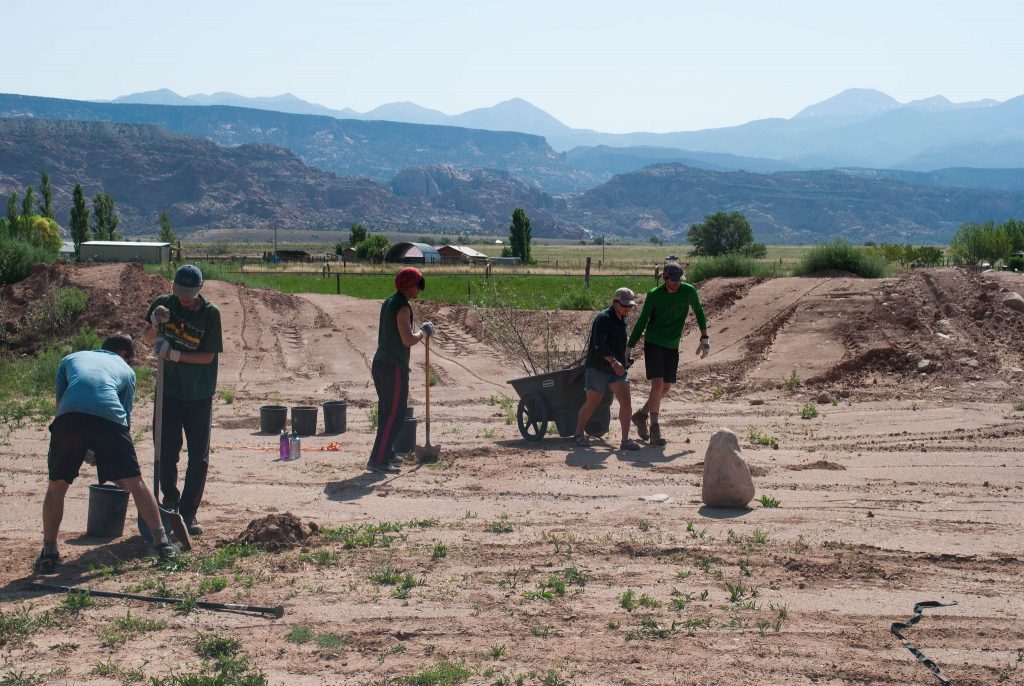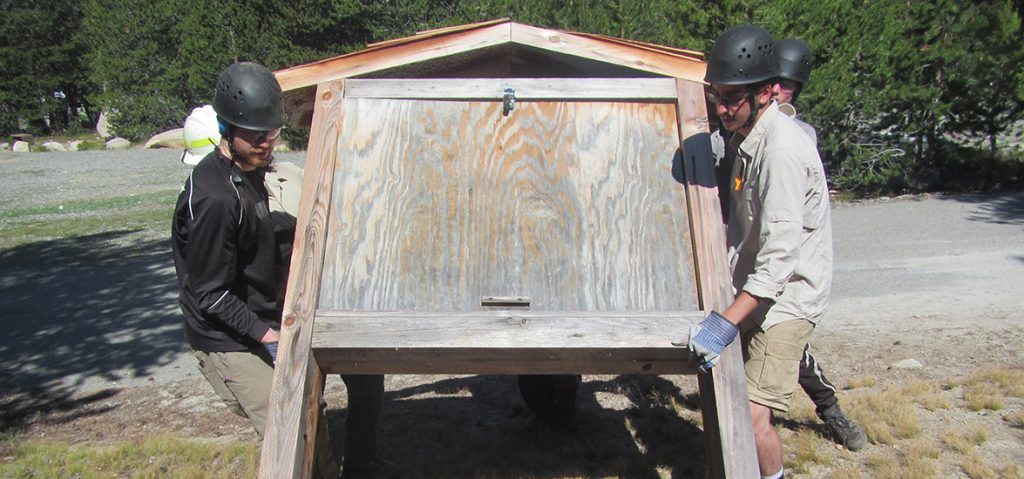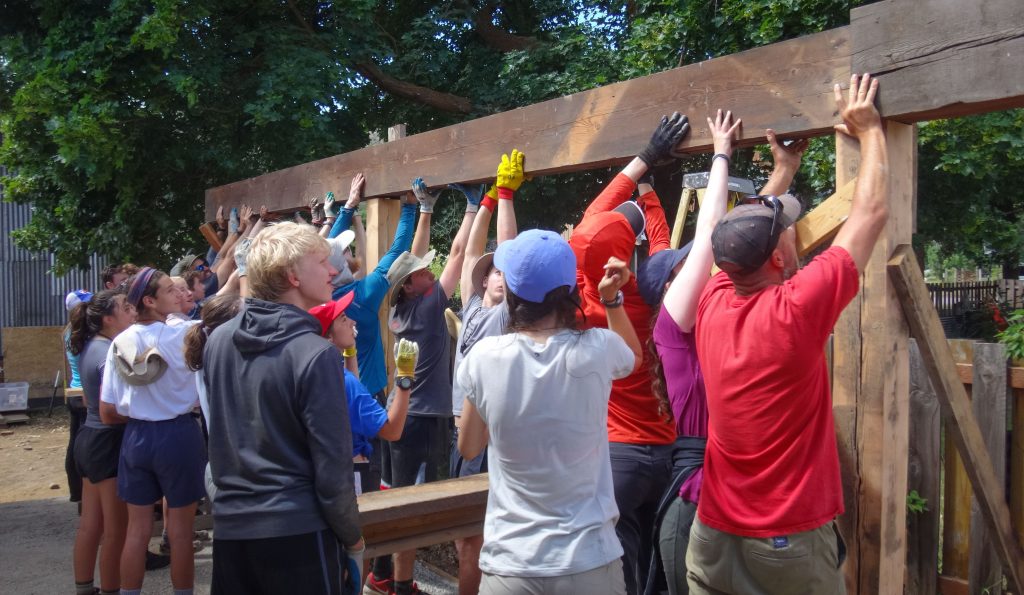Originally published on June 6th, 2019 and updated on November 17th, 2021.
At the beginning of every course, students are shown how to serve one another. Dinner isn’t cooked for them; they must cook it themselves. They can’t drive to their campsite, they have to walk or paddle—summiting mountains or portaging lakes. No one is doing it for them but themselves. Every student has a unique role each day, and depending on the course, those responsibilities can vary, but one thing remains the same across the board. Everyone is doing something for more than just themselves. And it’s up to them to choose how they handle that responsibility, or more so, that privilege. It’s a privilege to serve because the greatest gift we can give each other is ourselves.
“It’s within our power to shift young minds to recognize service as less of an obligation or a graduation requirement, and more so a way to experience a fuller life.”
As Instructors, we have the freedom and power to facilitate a progression of service on every expedition. It starts with us and how we choose to introduce service to our students, and that can lead to revelations. They can be simple ah-ha moments, or of greater weight: emotional and heart-wrenching. But it’s within our power to shift young minds to recognize service as less of an obligation or a graduation requirement, and more so a way to experience a fuller life.

Photo shows Outward Bound students completing a service project on a Pathfinder expedition, courtesy of Kelly Crandall.
Diversity in Service
When we give young people responsibility, we simultaneously give them the freedom to share their time, providing them with moments of reflection to see how their actions impact their community. Whether it’s at the end or during the wilderness phase of an expedition, students are gifted with an opportunity to serve on a wider scale. Outside of their crew, there could be hours or up to days set aside to give back to the greater community.
It’s common that many crews will do trail work as part of their expedition. This can strengthen the relationship between the crew and the places they’ve called their classroom and home while also providing a greater sense of gratitude for the outdoors. They may recognize that the hard work they put in could and probably will go unrecognized by frequented visitors, but that realization is counterbalanced with the worthiness they will feel about the hard work they did. It can also serve as a reminder to appreciate the maintenance put in by others to conserve beautiful places, even if they don’t know who it was or when. Giving time and energy without acknowledgement is a humbling experience, and it’s a lesson that is appreciated moments after it’s gone. After doing countless hours of trail work, I appreciate the stone steps on a rigorous trail I find myself hiking on.

Photo shows Outward Bound students completing a service project on a Pathfinder expedition.
While trail work is a more self-reliant and isolated service project, courses also provide crews with opportunities to work with other organizations. Many Outward Bound Schools have external relationships with like-minded organizations, and a mutual understanding for each other’s mission is necessary before volunteering. These opportunities are likely to be people-oriented, sometimes located in front-country or urban settings, and require a crew to be more self-aware, professional and willing to interact with others outside of their crew. These experiences, while rewarding, can be emotionally demanding, unlike trail work that tends to be more physically exhausting. It’s important to prepare crews for either type, talking to them about what to expect is important for the experience to be meaningful for all parties involved.
Examples of organizations that Outward Bound Schools have formed relationships with include soup kitchens, food banks, aquariums, museums, adopt-a-highway programs, animal shelters, community schools and gardens and other educational and environmental non-profits. Focus varies depending on location, but could include environmental activism and stewardship, local clean-up and promoting healthy lifestyles for all.

Photo shows Outward Bound students completing a service project on an expedition.
Outward Bound values its relationships and prioritizes understanding an organization’s mission before introducing a crew to a service project. We want to treat our service projects the way we treat each other on an expedition, coming from a place of curiosity, greeting something new with an open mind, knowing that the experience itself won’t last forever, but the impact of our work can.
No matter what service component is a part of your course experience, it will remind you that you are a part of something so much bigger than yourself.
Transference
The intimacy that comes from being that crew member on a course hits you when you go home—most of all—when you are away from the people that started off as strangers but grew to know you through hardship and humor. Being part of a crew is a gift too big and too profound to wrap up and lace with a bow. It’s a gift that needs to be experienced first-hand before it can be considered worthy of holding onto. We must serve to feel the joy that comes from being served. Without being asked, without being acknowledged, without questioning it. Outward Bound crews serve every day without thinking twice about it. It’s a part of what makes our connection to each other stronger.
There’s always a moment on a course when students (and staff too) can get stuck in a rut, thinking, why am I here? What is this doing for me? But it’s not just on a course we have those thoughts, and we shouldn’t shy away from them either. They make us stop and think about our purpose in that moment. Inviting those thoughts can lead to powerful discussions among crews. We’re not seeking answers to them, but rather embracing the emotions they can evoke within us. We have the power to facilitate a conversation that starts with “What is this doing for me?” and transcends into “What is this doing for me as a part of you?”
The More We Serve, the Farther We Go
If we choose to see the hard work we put into our careers, our relationships, our aspirations as service to a greater good, then we can change the world. Everyone can be given the opportunity to rise to an occasion, to protect and conserve, explore and write their own story.
I often think about my job as a service. I work hard to ensure that my crew is safe, challenged and learning from one another. I feel better about myself when I’m taking care of the world that has gifted me with countless beauty, creating genuine connection with the people that pass through my life. Take care of this place, these people, and they will take care of you.
If we are compassionate above all, through service, we will not rewrite history, but build upon it. The more we serve, the farther we will go. Your story will be of great service to someone, somewhere, if you choose to share it.

Photo shows Outward Bound students completing a service project on an expedition, courtesy of Luke O’Neill.
Everyone gives to others. But do we notice it—how and what we’re giving? If you choose to, it can increase your awareness of your own impact. It can help recognize that it’s the little things that matter. You’ll know confidently, once and for all, that you are needed to make the world a better place.
“Never doubt that a small group of thoughtful committed citizens can change the world; indeed, it’s the only thing that ever has.” – Margaret Mead
About the Author
Blaine Weiss is an outdoor Instructor who works primarily with the FINS and Intercept programs of the North Carolina Outward Bound School. With a background in film and writing, she seizes opportunity to fuse her interests in the creative arts with her love of the outdoors.




